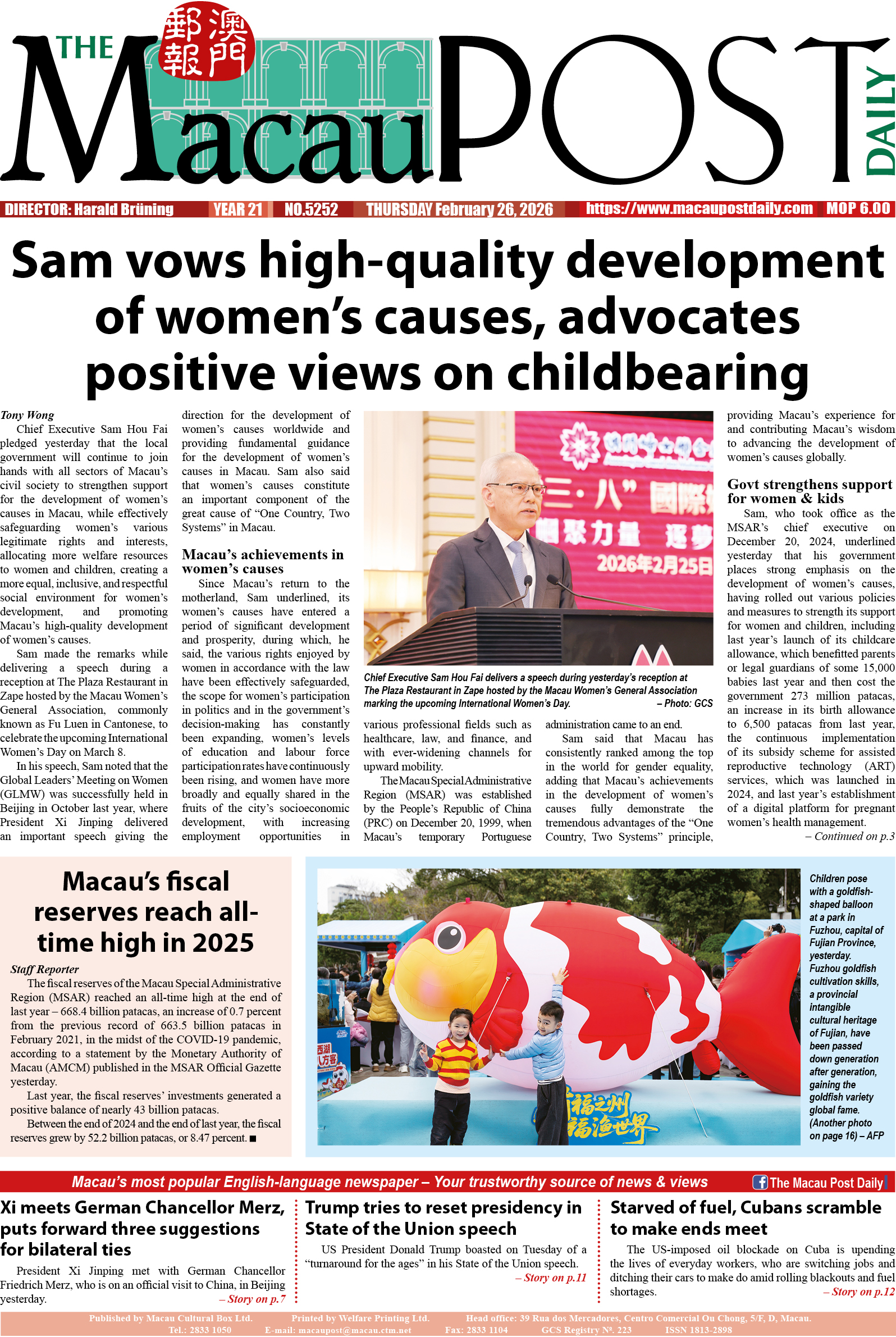The Court of Final Appeal (TUI) said in a statement yesterday that a former Veterinary Inspection and Control Division chief (referred to as A) of the now defunct Civic and Municipal Affairs Bureau (IACM) appealed to the Court of Second Instance (TSI) to scrap one of his “abuse of power” charges.
According to the statement, A, B and C started a company in 2012. A headed the Civic and Municipal Affairs Bureau’s (IACM) Veterinary Inspection and Control Division from June 2012 to February 2019. The statement said that in the span of six and a half years, A interfered with the procurement procedures 43 times so that his own company could win all the tenders. The statement also said that A was able to use his veterinary clinic to obtain the government’s tender to desex the greyhounds from the defunct Macau (Yat Yuen) Canidrome before they travelled overseas for adoption, adding that he allowed his private business to use public resources from the Civic and Municipal Affairs Bureau. The statement said that A was suspended from his duties for alleged abuse of power and illicit involvement in business activities in March 2019. The Court of First Instance sentenced all three defendants on January 15, 2020.
The statement noted that three other people involved in the case also appealed to the Court of Second Instance but their appeals were not successful, while the former Civic and Municipal Affairs Bureau (IACM) Veterinary Inspection and Control Division chief partially succeeded in appealing his charges.
According to the statement, A appealed due to “ne bis in idem” which literally means “not twice about the same”, i.e., the principle provides that nobody should be judged twice for the same offence. The statement pointed out that A had two “continuous offences of abuse of power” charges, but A believed that he should only be charged once.
The statement pointed out that the two charges were based on different facts, therefore, his argument of the court violating “ne bis in idem” was deemed invalid.
However, in the second charge of “abuse of power” it is clear that A only used his power once to obtain illicit benefits for his veterinary clinic, so his action did not constitute the commitment of the same crime within the context of “continuous offences”, according to the statement.
The statement also said that on the topic of whether the second charge of “abuse of power” should be categorised together with A’s first charge of “continuous offence of abuse of power”, the court said that there was no evidence that showed A deserved a lesser sentence. In contrast, the statement added, after A was able to obtain illicit benefit for his hidden company, his “greedy desire” motivated him to obtain more benefits through using his power to earn profits for his veterinary clinic. Therefore, the statement said, the Court of Second Instance ruled that A was charged with “continuous offences of abuse of power and a “single offence of abuse of power”.
Moreover, the statement noted that during a procurement procedure, A breached the confidentiality agreement and passed information to his hidden company that resulted in at winning the tender. The court underlined that A’s action breached both the “confidentiality” clause and “abuse of power” clause, adding that the former requires civic servants to keep confidential information private, while the latter aims to ensure that power will not be abused, i.e., two charges protect two different things so both charges are allowed to co-exist.
The Court of Second Instance ruled that A’s second “abuse of power” charge resulted in a one-and-a-half-year imprisonment, while along with other charges, A has been sentenced to four years behind bars.









